While we assemble our dynamic facilitators for Toronto Change Days 2019,
check out 2018’s change facilitators and workshops .
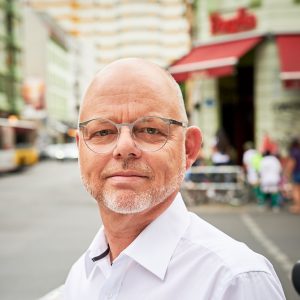
Keynote Delivery
We can go further. How Agility, Boundaries and Curiosity Will Shape the Future of Our Discipline
We all feel that the pace of development and change is accelerating day by day, driven by technology, demographic changes and political turmoils that have become unpredictable. The times in which the conditions that shape our lives were not volatile, uncertain, complex and ambiguous are long gone. The younger generation has not experienced any stability at all. We can now see that 1989 was a turning point: the year in which the Berlin wall came down and the World Wide Web was developed at CERN laboratories.
Being change agents, change disruptors or change navigators, we believe that is us who can support individuals, teams, organisations and societies to master transitions and transformations. It is part of our profession to practice the art of the long view while helping systems to adapt quickly.
In my keynote, I will look back at the milestones of our discipline with particular emphasis on ten years history of Berlin Change Days. I will then offer a glance at the near future, referring to the theme of the Toronto Change Days:
Agility as the key characteristic of systems that want to adapt and thrive.
Boundaries that we need to overcome (or erect) in order to define and widen our playing field.
Curiosity as an attitude that we need to maneuver in this crazy world.
I will close with describing my vision of the Change Days as a global series of events which nurture our brains, hearts and souls and provide us with fresh energy for our daily struggle in making the world a livable place.
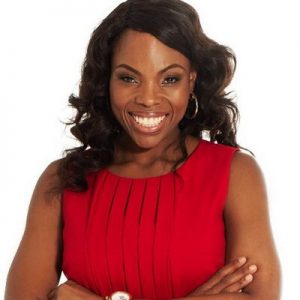
The Art of Leading Change
Workshop & Bio
Practicing Change Management is often considered both an Art and Science. This workshop focuses on the art of leading change and the needed competencies, going beyond ‘methodologies’ and ‘models’. It also explores tools needed to lead change in today’s fast-paced and disruptive business environment, most especially as we embark into the fourth industrial revolution of AI, Robotics etc., where being agile and responsive to change is a must-have.
The workshop will delve into the complexities associated with navigating fear and resistance from a variety of stakeholders across the organization; working with senior leaders to get their buy-in and co-operation; and how to more effectively collaborate with internal project team members, and to overcome common barriers encountered during the process of leading and managing organizational change.
During the workshop, participants will learn and explore the role of curiosity, leadership, empathy, emotional intelligence and communication as effective tools in successfully leading and managing change.
—
Yvonne is an Organizational Change Management Lead and Change Leadership Advocate with over 16 years of change experience helping professionals and organizations to implement and transition through
change.
She is genuinely passionate about change and has worked with a broad range of organizations globally to lead and manage their strategic, technology and regulatory Change Initiatives. During her time with these organizations, she has gained invaluable experience in effectively leading and managing change. Her global experience has also afforded her exposure to working within diverse business environments, and a proficiency in thinking ‘outside the box’ to respond to change better and faster.
She is also the founder of The Change Leadership, a series of events and conferences focused on preparing leaders, change practitioners and organisations to lead change in today’s fast-paced and disruptive business environment. And in so doing, positively impact the welfare of the surrounding communities and the economy.
She holds a BSc honours in Business Information Technology & Marketing from London Guildhall University, an MBA with Warwick Business School, England, and a Change Leadership Certificate from Cornell University.
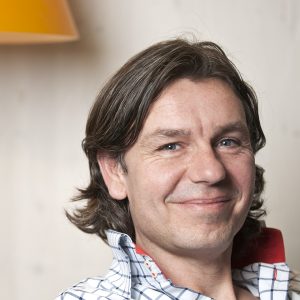
In Boundaries we Trust
Workshop & Bio
One of the TCD themes is ‘Boundaries’. In my workshop I would like to explore, with the help of the participants, what the relationship is between ‘Trust’ and ‘Boundaries’. What is the effect of (dis)trust on (experienced) boundaries? Do boundaries limit trust or do they -as some very recent research says- actually búild trust? If we want to overcome boundaries, what is the role of trust? Based on 30 years of research on trust(building), this experiental learning and highly interactive workshop participants will experience and learn about the interplay of trust and boundaries and how to possibly use that interplay as a change manager.
…
Edu has 20 years of experience as a consultant in behavioral psychology. His work mainly focusses on organizational trust. Next to facilitating workshops on this topic he is an international speaker and researcher and a member of the First International Network on Trust.
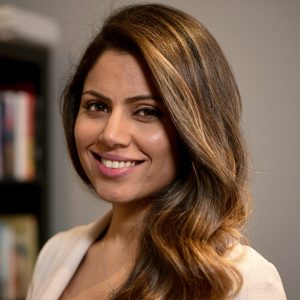
Navigating the most sensitive change conversations – nimbly, curiously, respectfully
Workshop & Bio
In times of constant change, there are many change initiatives that fail, that get dropped, or that never survive the birth of its change strategy development process. So, when yet another change gets introduced, people quite logically, are critical of the new initiative, especially when they are experiencing change fatigue and change apathy. This is commonly seen through subverted comments, such as, “We tried this before and it failed miserably; what makes you think it will work this time?”, “This will never work here,” “What happened to the other change initiative that was the highest priority until last week?” This session shares an interactive exercise that can be used at multiple stages within a change process. The activity uses the card game modality, which has been demonstrated in play therapy to lower defensiveness and create immersive learning experiences for adults. The scripts on each card are designed to enable people to navigate the most sensitive change conversations—nimbly, curiously, and respectfully. Through participation in this interactive card play, the participants will be able to: – Identify courageous yet critical conversations necessary to facilitate change – Learn strategies to reduce anticipated resistance through the facilitation of conversations in a way that honours personal boundaries and is guided by a mindset of curiosity to learn and understand – Understand how to select the most impactful conversations based on the different stages of the change process and the type of change
…
Sandeep is an Industrial-Organizational Psychology Practitioner who serves as a change strategist and speaker. She partners with leaders responsible for creating impactful changes in their organizations. Sandeep supports organizational change management through provision of consultations to change teams, keynotes at large-scale change events, and change capabilities’ training to leads across organizational levels. Sandeep also works one-on-one with individuals leading organizational or personal changes.
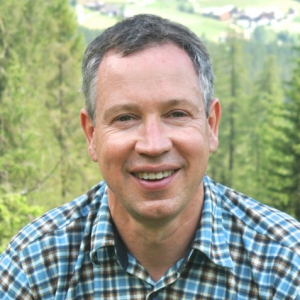
How to deal with surprises? Serious Play with Agility, Boundaries and Courage
Workshop & Bio
As human beings we will always be surprised – positively or negatively. To embrace such a world we need agility, a different mindset and a lot of courage. Essential capacities for people in teams, organisations and (urban) places to deal with our fast changing world. Let us together explore how to shape more fit-for-future organisations and communities. Experience how to co-create an agile environment by embracing a different mindset. Learn to understand that both courage and knowledge are key. During this playful workshop you will be stimulated to dialogue with other participants, sharing perspectives and finding insights to navigate in a VUCA world. A workshop in which we will shape a place for joy, renewal and innovation.
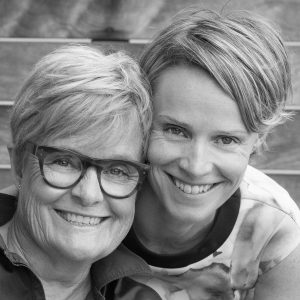
This Changes Everything
Workshop & Bio
We live in a complex global world where demands of leaders are increasing everyday. With a focus on transparency, inclusion, equality, agility, possibility and collaboration, how can leaders leverage themselves to live, work and play in a way that is respectful, sustainable, and most important, fun? The answer is simple. Curious conversations.
Hiding behind texts, emails and social media, conversational skills are the most important skills leaders are failing to engage in. Research out of Stanford is showing that 9 out of 10 conversations miss the mark. Research is also showing organizations are focused on ‘soft’ skills that have hard impacts: communication skills, critical thinking, agility – all of which require curiosity. These are skills that are expected of leaders but are never taught. Curious conversations are the disruptor needed to thrive in our global, multigenerational workplace.
In our interactive workshop, participants will experience how curious conversations are at the forefront of innovation and collaboration in a time where demands are high and resources are low. Participants will experience and learn: -The value of different perspectives, there is never just one way to do anything – Communication skills to shift leaders from reacting to intentionally responding – Self-awareness, clarity around how they are showing up as a leader, their impact and turning barriers into bridges – The skills needed to collaborate, innovate, problem solve & manage emotions. Skills that are currently expected of leaders but have never been taught Canada’s success lies in our leaders’ ability to confidently disrupt the status quo, step out of comfort zones while also being inclusive and collaborative, as they reflect rather than react.
…
Kirsten Siggins and her mother Kathy Taberner are executive coaches who have specialized for over 10 years in helping people have conversations and build relationships that don’t suck, especially in emotional or high stakes situations. Focusing on skills that we all have the ability to do, but are rarely taught, Kathy and Kirsten’s unique approach for handling conflict makes it easier to have conversations that hit the mark. They are the founders of the Institute of Curiosity and authors of ‘The Power of Curiosity: How to Have Real Conversations That Create Collaboration, Innovation and Understanding (Morgan James 2015), available in English and Japanese.
Kathy Taberner has a background in occupational therapy, a MA in Leadership and is a Certified Executive Coach, both obtained from Royal Roads University. She is a Professional Certified Coach (PCC) through the International Coaching Federation(ICF) for which she sits on the Internal Review Board which hears all ethical complaints. She is also a certified physician coach. Kirsten Taberner Siggins is a certified executive coach and a member of the International Coaching Federation, with experience in the business world and the entertainment industry. With the birth of her first child, Kirsten gained a greater appreciation of the importance of communication as a parent, and the deep influence it has on the development of our children as leaders. Kathy and Kirsten work as speakers/ trainers/ executive coaches/ facilitators recognizing curiosity is essential to personal growth, success, innovation, health, and happiness.
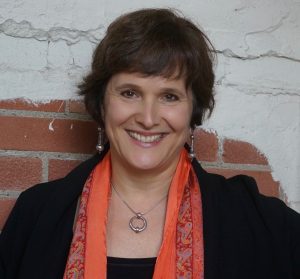
Accessing Curiosity & Insight through Embodiment
Workshop & Bio
Tap into the body’s wisdom for new information not gained using linear thinking to better enable systems
change and individual change. Participants will learn the embodiment practice created at MIT’s
Presencing Institute called Social Presencing Theatre. This method enables agile development and
curiosity about previously unseen solutions to challenges. This is a collective practice where participants
co-create social body sculptures that model a challenge in the system they are working with. It is purely
experiential with exercises done in silence followed by a spoken debrief.
…
Michelle is the founder if MindEQuity and has 25 years of corporate management consulting experience which she is now channeling into empathy & insight practices to foster humane innovation and technology development. She believes humanity is key to solving the world’s challenges, along with empathy, innovation, & co-creation in collaboration with the machines who will soon outperform us cognitively, but
never compete with human wisdom.
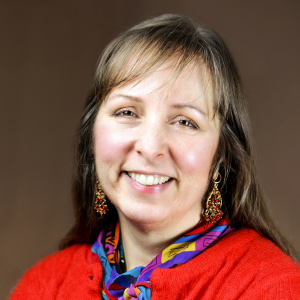
Visual, auditory and kinesthetic thinking for Change
Workshop & Bio
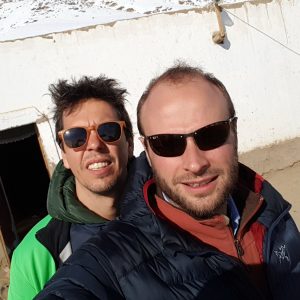
Hello body… exploring our boundaries to agility through non cognitive processes
Workshop & Bio
How to identify and act on the individual and collective boundaries? We all unconsciously set these boundaries which limit our potential to be agile and cultivate curiosity among us. This question inspires our participation in TCD. We propose participants to explore our individual and institutional boundaries to agility and curiosity. We defend the idea that big part of these boundaries remain in our individual and collective subconscious. In this sense we need non-rational tools to access them. Accordingly, we will use embodied and visual facilitation tools such as Social Presencing Theatre, metaphoric thinking for the session. We will look at our boundaries using three different lenses: Ways of seeing, ways of thinking and ways of relating. First we will look at the metaphors we use and experience to what extent they limits what is possible and real (ways of seeing). From there we will explore our ways of thinking by reflecting on the assumptions and mindsets that these metaphors create. To Third lens is power, to see to what forms and expressions of power affects positively and/or negatively our potential to be agile and curious.
…
Giulio has been working as consultant/facilitator for the last 5 years mainly in the international development sector. Mainly as advisor for organisations and facilitator in workshops on monitoring and evaluation, Theory of Change and Strategic planning. He is curious and passionate about how social change happens and how humans relate to one another in different contexts, cultures and environments. He has traveled extensively during the last years and got involved in exciting and intense projects. He is now looking for a more balanced lifestyle to combine work and making sense of his own practice. He has been living abroad for the last 13 years before in East Africa and then in UK. Recently moved back to Torino his home town in Italy as he was kind of missing its own roots and most of all its mountains.
Daniel Guijarro has over 16 years experience in international development and human rights. He is a facilitator, action researcher and consultant interested in exploring ways aid practitioners and human rights activists, NGOs and other social collectives can learn and change to contribute to wider changes in mindsets, relations and identities towards more fair realities. With a background on Monitoring, Evaluation and Learning of development programs, he has extensive experience in facilitating evaluative, organisational learning/change and assessment and strategic planning processes in Latin America, Africa and the Middle East as well as the UK and Spain. His approach draws on experience in applying participatory and empowerment approaches to evaluation processes and promoting inclusive spaces where different stakeholders can engage in a constructive dialogue and all voices can be heard. Dani uses principles of Participatory Action Research and Power Analysis for facilitation, combined with Double Loop Learning theory to help stakeholders and organisations critically look at the assumptions, mindsets, values and relationships that guide their plans and actions.
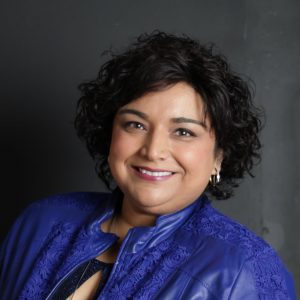
Leveraging Inquiry for Extraordinary Transformation
Workshop & Bio
Positive psychology is the science that seeks to explore ‘what’s works’, while traditional psychology has had a predominantly deficit focus on ‘what’s wrong’. Positive psychology, paired with Appreciative Inquiry can bring a much needed balance to individuals & organizations by bringing attention to their strengths, capacities and potential. Many business leaders are turning to this emergent evidence-based research of Positive Psychology and Appreciative Inquiry to answer the question, “How can I leverage my resources to inspire innovation and sustainable extraordinary outcomes?” Using a positive psychology lens, this interactive session will provide tools and strategies that will not only enhance the well-being of your people, but also assist in identifying and leveraging their strengths to optimize sustainable performance outcomes as an organization, using inquiry and strength-based practices. Learn about how enhancing your own well-being impacts your quality of life at work and at home. Experience how to recognize and leverage the ‘positively deviant’ assets of your team and keep yourselves on the cutting edge of being innovative, adaptable & extraordinary!
…
Dr. Sajel Bellon (Ed.D, CTSS) is a thought-leader, mental wellness professional and speaker who specializes in the sciences of well-being, human connection, and positive transformation for individuals and organizations. She has developed and delivered programs around the globe, educating and inspiring others. She is an expert in cultivating the space and conditions for enhancing work-life experiences and relationships, using evidence based research and applications.
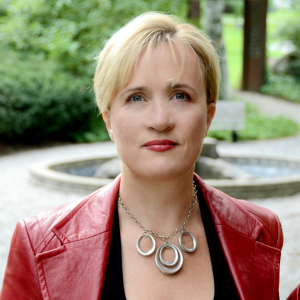
Love Your Challenges – The Simple Shift
Workshop & Bio
The reward is just on the other side of the pain, and yet more often than we would like pushing through seems an insurmountable mountain to climb. We ease off on the momentum rather than pushing down harder on the gas peddle causing us to stall halfway up. What if there were a few simple tricks to keep that gas peddle pressed firmly to the floor driving us up that hill with the speed that is required? What if we were able to lean into the challenge and the pain with an underlying sense of joy in the effort? We are actually hard-wired to overcome obstacles and solve problems, it is what makes us human and keeps us fired up. Participants will learn simple and effective tools for shifting into the challenge, how to encourage each other to lean in and how to make sure that they are using the tools on a regular basis.
—-
Dana brings a powerful and engaging energy, delighting the audience with humorous and playful stories from her background as a Dominatrix. She also brings 25 years of field experience working with clients to get them from feeling broken to owning their Inner Dominatrix to lead their businesses fearlessly. Challenging the status quo, and opening people up to preconceived ideas are woven into every interview or client session.
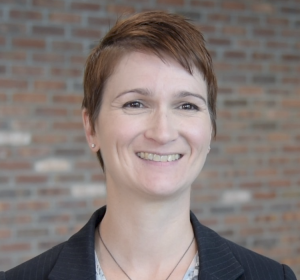
Pulling Together
Workshop & Bio
Study after study indicate that integrated, diverse and collaborative teams perform better, and yet most organizations still consist of siloed disciplines, siloed and disengaged team members, and people focused on completing individual tasks without much interaction. Getting work done to get a paycheck and keep a job. When trying to execute a project, develop a new process, or design and implement a major change, we need to have engaged personnel, working together. We need to drum up excitement and influence teams to want the change, to help achieve that end goal. But how do you get that started, when everyone has a different opinion? How do you break down siloes to get people working with others who they’ve never (or rarely) engaged with before? How do you gain input into the proposed change, so that you can ensure it will work for everyone, and so that your change initiative will be successful?
This workshop will utilize individual and group table-top exercises to explore the many different perspectives and approaches that can exist within a team, and through the exercise demonstrate an approach to bring them to working together to understand and respect each others’ perspectives, to align on goals, and to resolve the collaboration challenges they might face.
…
Karen has 20 years of experience working in the industrial sector, as an engineer, a project manager, a collaborator, and an organizational change agent. She has strengths in bringing diverse stakeholders together to solve complex challenges, and has been trusted and recommended as a manager who can and has delivered results, with a tenacity to overcome obstacles and facilitate finding the right solutions. Karen believes the greatest value can only be derived through aligning teams to common goals, healthy engagement, and collaboration to reduce wasteful practices. She facilitates open dialogue and developing team trust and respect, to allow stakeholders to expose risks, gain a common understanding of multiple objectives, and discover improvement opportunities and solutions within the operations, projects, and organizations for which they work.
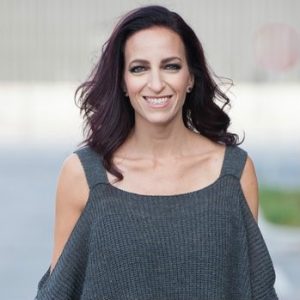
Mapping Your Learning Legacy
Workshop & Bio
How does change happen in the brain? When humans are required to change, overcoming boundaries to do something different or new, the brain gets to work, physically creating the pathways to do so. Without this plasticity, everything would remain the same. What better way to explore this than through learning! We are in an exciting time in learning, where the boundaries of our capabilities keep growing thanks to the amazing findings of Neuroscience Using the science of how the brain learns, come on an adventure inside your brain, and get hands on as we create a living map, that taps into the curiosity of the mind, to chart the path of possibilities for learning and growth in your organizations. Get ready for a change from training, to learning! YARR!!!
…
Lauren Waldman is a curiosity seeker with a deep desire to learn, share, help and laugh.
From Lauren’s start as a certified international teacher of language, to her ever-growing collection of degrees, certificates and professional accolades, it’s her infectious ability to bring people into her world of curiosity and possibility, which has gained her success.
A trainer, designer, facilitator, speaker, mentor, coach, and self-proclaimed pirate, she takes you on your own guided learning journey. Lauren creates with you, epic learning adventures and solutions, drawing on her 16years of professional experience that spans the globe, industries, on land and at sea, and even sometimes in the air!
She taps into the science, and fun of learning, while maintaining a sharp approach with intense dedication to the success of others. Her current focus in the studies of neuroscience and how the brain learns, has played an eminent role in helping individuals and corporations navigate through the creation of what she calls “Learning Legacies”. These studies have also given rise to strategies relevant to the confusions and challenges, of the current cross generational workforce.
Lauren is a CTDP (Certified Training and Development Professional), has certification in the Fundamentals of Neuroscience (Harvard), has recently completed a certificate in Medical Neuroscience (Duke), is a Designated Communication Coach and Trainer, and is an advisory board member of the NCCA (National Communication Coaching Association of Canada)
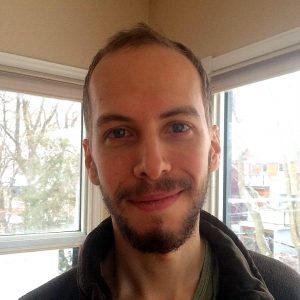
Authentic Relating Games: Connection as an instrument for change?
Workshop & Bio
How close do you feel to the people in your life? How often do you say what you really mean? When was the last time you felt seen? I believe that so much of what we do in the world happens through
relationship, and so the quality of our interactions matters immensely.
In this workshop, we will play a series of authentic-relating games to explore the territory of human connection. AR games are part icebreaker, part improv, and part meditation, played in pairs or groups, and ranging from light and fun to deep and edgy. (Don’t worry, I will ease you in and you only have to go as deep as you’re comfortable.) Each game is a collaborative experiment, where the goal is not to win, but to be curious and open to discover something new about ourselves, each other, or the topic at hand.
For me, this workshop is also an experiment, posing the question: does connection play a role in creating positive change? I have a hunch that the answer is a big “yes”, but I’m more interested in sparking a dialogue where we explore the question together.
Possible outcomes for participants include insights about themselves, a feeling of closeness, a lingering curiosity for other participants, a sense of wonder for the beauty of human interaction, inspiration to bring more depth into their future interactions, and answers (or more questions) about the intersection of connection and change.
…
Josh teaches people how to have a different kind of conversation, one that enriches connection and reveals aspects of ourselves and each other that were initially hidden from view (often in plain sight). He is the founder of The School of Circling Wizardry, where he teaches live virtual classes in a mindfulness-based communication skillset called Circling. Before that, he co-founded and led Authentic Relating Toronto in 2011 for four years, facilitating everything from evening mixers, to team-building workshops, to weekend intensives. He lives in Toronto and enjoys walks in the woods, geeking out on Integral Theory, and binging on his favourite podcasts (e.g. How I Built This) and shows (e.g. The Expanse).
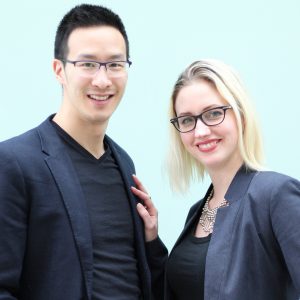
Humans at the Heart of Change
Workshop & Bio
In this interactive workshop, participants will explore the human side of organizational change by working together to conceptualize a culture of agility and curiosity that challenges yet respects individual boundaries. Participants will be invited to analyze their change leadership styles, work collaboratively on case studies, and share stories and lessons learned about how to promote and sustain change leaders’ grit and growth mindset through transition, and tap into big potential!
…
Lindsey Ostrosser is a postsecondary Student Affairs and Services professional and is the co-founder of Relationship Zen. She inspires her teams to design, facilitate and implement initiatives that foster student success. In her spare time, she is a community facilitator, sings classical voice, and is a yoga enthusiast. Lindsey’s favourite aspect about Change Intelligence (CQ) is the framework it provides for learning how to harness and maximize the unique perspectives and strengths of individual group members.
David Ip Yam is a postsecondary professional and leadership educator. His approach to management is to care, connect and enable while fostering a learning-centered, impact-driven, and theoretically-grounded culture. This approach reflects his core values: add value, lead collaboratively, and learn continuously. His personal projects include co-running a Karate school, writing and facilitating for RelationshipZen.ca, and consulting for small start-up not-for-profits. David enjoys Change Intelligence (CQ) because it addresses the psychological and interpersonal aspects of change management, making it easier to achieve shared aspirations.
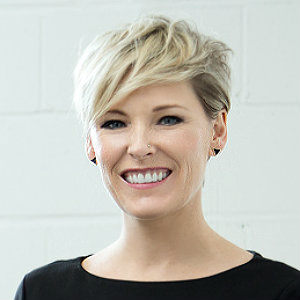
Mindfulness as a Tool for Change
Workshop & Bio
Creating meaningful change requires insight into the perspective of “the other”. It requires building empathy, compassion, and understanding into the history, motivations, and realities that others involved in the equation bring to the table. Using techniques such as visualization, mindfulness and meditation can foster empathetic, compassionate and meaningful responses to any situation that requires change. Change- makers can use these methods as effective tools for quickly moving through the process of understanding an issue, building empathy for the other, and responding with compassion.
…
Carissa is a social purpose entrepreneur who is passionate about using mindfulness as a tool for social change. She is the Managing Partner at Orenda – The Social Purpose Company and is also a mindfulness and self-compassion coach for socially focused professionals. Throughout her career she has worked as a youth worker, educator, international development practitioner, project manager, director, board member, and consultant tackling social, environmental, and indigenous issues around the world and across Canada. Carissa has served on the boards for several non-profit organizations and is an advisor with Endeavour Volunteer Consulting for Nonprofits, a member of Women for a Humane Canada, and a volunteer advisor with StartUp Canada.

Fierceful Listening
Workshop & Bio
Fierceful Listening
“The problem with listening is that it is so easy not to do. Listening is very hard work.” (Emma J. Justes)
Most of us believe that we are good listeners. In fact, few of us are, and many of us have little to no awareness, let alone control over our listening skills. It takes lifelong and constant practice to develop our listening skills.
In this short workshop, I will give an introduction to the larger concept of Deep Listening that will be offered as a masterclass after the TCD. Deep listening is a skill that enables those who master it to focus on other persons while not losing themselves and their purpose in the conversation. It is based on a mixture of neuro-physiology and psychology with a dash of spirituality and philosophy. It helps us as change practitioners to grow our professional capacity and as human beings to mature.
After a short theoretical introduction, participants of this short workshop will practice fierceful listening by
- Listen to self: learning to observe distractions, suspend assumptions and turn down inner voices
- Listen to others: increasing curiosity and search for other people’s purpose
- Search for alignment: finding the sweet spot that lies between both conversation partners
——
Holger Nauheimer is the founder and developer of the Change Days movement. He has hosted the Berlin Change Days for 10 years and helped to giving birth to the Toronto Change Days.
For 30 years, Holger has inspired the world of change management and organizational development. With hundreds of articles in the Internet, countless training programmes for leaders around the world and 10 years of hosting the Berlin Change Days, he has had an impact on many change practitioners. Likewise, in his work with large multi-national companies and global NGOs, he has supported the development of leadership and collaboration skills.
Holger’s philosophy and approach rests on strong shoulders: he studied with the masters. In particular, he takes his inspirations from Stephen Gilligan (Hypnotherapy and Trance), Robert Dilts (Generative Systems Work), Max Schupbach (Deep Democracy), Peggy Holman (Complexity), Juanita Brown, Marvin Weisbord and Sandra Janoff (Facilitation), David Cooperider (Positive Psychology), Harrison Owen (Open Space Technology) and many others. Based on these sources, he has developed a conversation model with which people can craft healthy and constructive work relationships.
He has expressed his philosophy on life and work in an interview.
It is the first time that Holger gives a class in Canada.
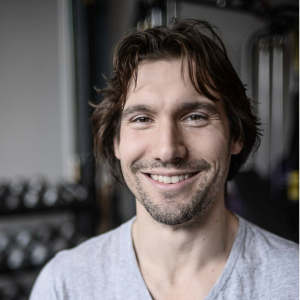
Sticks & Balls: Using Physical Play to Prepare for Change
Workshop & Bio
The “Sticks and Balls” approach is all about using fun constraints (sticks, balls…) to connect physical curiosity to the agility and stamina needed to change. Constraints are boundaries that create unique learning opportunities. In the face of some constraints we can see our shared experiences, and from this place of agreement, we can decide when to shrug some of the them off. Trusting and experiencing a real feeling of strength and stability under some constraints a unique transformative tension can develop. It is only with healthy tension that we can change and adapt.
This kinesiologically and design-thinking informed session will also have attendees walking out with a reminder that the human body thrives when it can explore its agility and curiosity physically. Change is an individual game, and a team game. It requires the ability to create, hold, release and flow with tension. Leave armed with tools you probably have in your cupboards and a new way to feel and experience change.
—
Scott has over 10 years of health and wellness practice and consulting experience working with a wide range of people and organizations from professional martial artists and heavy truck part sales organizations all the way to youth athletes and people with movement disorders like Parkinson’s Disease. He co-founded Motus Training Studios “the gym you need it to be” in Toronto’s Junction Triangle area and teaches at the University of Guelph-Humber in their Kinesiology and fitness programs. He’s got 2 young boys and loves to brush his teeth on one leg.
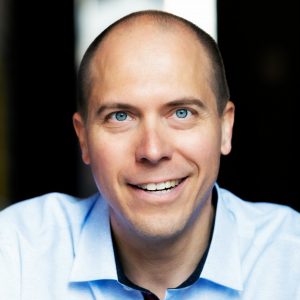
Image Theatre Games!
Workshop & Bio
You are cordially invited to a fun practice of Image Theatre Games! The intentions of this practice are to: create a safe space for curiosity and exploration, to support each other in moments when we feel we are at the limits of our personal boundaries, and to develop greater agility in meeting those boundaries and pushing beyond them. Image theatre games are practical yet playful ways to achieve a variety of goals including conflict resolution, better self-awareness, and promoting group cohesion. These games dynamize self-awareness through gentle acknowledgement and embrace of the truth of one’s self. And they promote group-bonding by allowing individual stories to be deeply seen and heard and reflected. In short, these are great life-tools to have in your kit. Please come to this session and help us practice them.
NO EXPERIENCE REQUIRED.
Come as you are. There is no wrong answer here. You can’t screw this up. Seriously.
…
Nathan Bragg is (among other things) a Toronto-based actor who loves dramatic improv and Theatre of the Oppressed games and finds them totally useful in the course of his life and work.
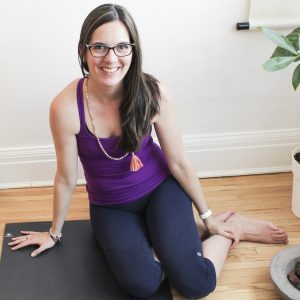
Shit Happens. Navigating Change.
Workshop & Bio
How do we navigate shit when it happens? How do we get what we need? How do we see
ourselves in relation to it all?
How do we choose to be with the shit? Is it the end of the road or is there a way to be present
to it and shift the lens in terms of how we perceive it?
We are always looking for information rather than trusting our gut. How does it fit into our lives?
Using the tools of yoga therapy we seek to answer these questions as we will curiously explore
our boundaries and reflect on how we can use this awareness to develop more ease and agility
in our life.
Stretchy pants recommended. No yoga experience required. This is not a yoga class but you will
be asked to participate in partner work that is safe and fun.
—
Lindsay Keefe is a yoga therapist living in Toronto. She values creating community and connection, life-long learning and aspirations to be our best selves possible. Her fundamental belief is that healing is possible and considers it a privilege to teach and guide others toward optimal health.
Lindsay has an honours degree in psychology and religious studies from Queens University and a bachelor of education from Brock University. She started off teaching kids yoga while teaching at an international school in Hong Kong. Lindsay has had her own business teaching private and corporate yoga classes since 2013 and now focuses on helping people achieve a new and better state of being through yoga therapy. She studies yoga therapy with Susi Hately from Functional Synergy.
